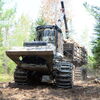Processing Your Payment
Please do not leave this page until complete. This can take a few moments.
- News
-
Editions
-
- Lists
-
Viewpoints
-
Our Events
-
Event Info
- Women's Leadership Forum 2025
- On the Road with Mainebiz in Bethel
- Health Care Forum 2025
- On The Road with Mainebiz in Greenville
- On The Road with Mainebiz in Waterville
- Small Business Forum 2025
- Outstanding Women in Business Reception 2025
- On The Road with Mainebiz in Bath
- 60 Ideas in 60 Minutes Portland 2025
- 40 Under 40 Awards Reception 2025
- On The Road with Mainebiz in Lewiston / Auburn
- 60 Ideas in 60 Minutes Bangor 2025
Award Honorees
- 2025 Business Leaders of the Year
- 2024 Women to Watch Honorees
- 2024 Business Leaders of the Year
- 2023 NextUp: 40 Under 40 Honorees
- 2023 Women to Watch Honorees
- 2023 Business Leaders of the Year
- 2022 NextUp: 40 Under 40 Honorees
- 2022 Women to Watch Honorees
- 2022 Business Leaders of the Year
-
-
Calendar
-
Biz Marketplace
- News
- Editions
- Lists
- Viewpoints
-
Our Events
Event Info
- View all Events
- Women's Leadership Forum 2025
- On the Road with Mainebiz in Bethel
- Health Care Forum 2025
- On The Road with Mainebiz in Greenville
- On The Road with Mainebiz in Waterville
- + More
Award Honorees
- 2025 Business Leaders of the Year
- 2024 Women to Watch Honorees
- 2024 Business Leaders of the Year
- 2023 NextUp: 40 Under 40 Honorees
- 2023 Women to Watch Honorees
- 2023 Business Leaders of the Year
- + More
- 2022 NextUp: 40 Under 40 Honorees
- 2022 Women to Watch Honorees
- 2022 Business Leaders of the Year
- Nomination Forms
- Calendar
- Biz Marketplace
A Maine-based restaurant chain tries out a new model of employee ownership
 Photo / Jim Neuger
John Boyan, became president of Sam’s Italian Foods in February. There are 14 Sam’s restaurants in Maine
Photo / Jim Neuger
John Boyan, became president of Sam’s Italian Foods in February. There are 14 Sam’s restaurants in Maine
Sam’s Italian Foods, which has 14 restaurants and is based in Lewiston, was sold last year to Teamshares Inc., a New York-based startup that assists small businesses as they transition to employee ownership. Sam’s Italian, founded in 1939, was sold by Richard Michaud, who started as a Sam’s employee in 1988 and eventually, with his wife Wendy, took over the business.
There are 14 locations — two in Auburn, five in Lewiston, and one each in Augusta, Brunswick, Dixfield, Freeport, Lisbon Falls, Rumford and Topsham. The Freeport location closed in 2021, citing staffing shortages, but was expected to reopen in the summer.
Teamshares is a Series C-funded company that buys small businesses from retiring owners. All employees are retained and earn shares in the company. Teamshares has purchased 51 businesses nationwide. Sam’s was Teamshares’ first Maine acquisition.
John Boyan, a broker relations lead with the firm, became Sam’s Italian’s new president on Feb. 1. We asked Boyan how the share program rolled out. Here’s an edited transcript.
Mainebiz: How has the employee-ownership model unfolded since Teamshares bought Sam’s Italian?
John Boyan: The high-level thing to know is that we have now issued shares to our 67 employee-owners. They all have a stake in Sam’s Italian Foods. The benefit is that they are now treated as owners. When we make a profit, we’re able to distribute the profit through ownership.
MB: How much of the business do employees now own?
JB: Employees now own 10% of the business. We had our first session doing employee-ownership education, to communicate what a share is and how we determine its value based on company valuation: ‘If we’re more profitable, the value of your shares increase. If we aren’t, the value decreases.’
MB: When do employees become fully vested in their shares?
JB: Once you’re here for four years, you earn 100% of your shares.
MB: How do employees realize the cash value of their shares?
JB: When an employee retires, Sam’s will buy back the shares at the share price. So if you’re fully vested in your shares, which means you’ve been working at Sam’s for four years since the transition took place or since you were hired, and if you decide you’re going to leave the company, Sam’s would pay you cash based off the total value of your shares.
MB: Does the model provide the possibility for employees to see cash more immediately?
JB: The other way we can put actual money in their pockets is by issuing dividends. If we’re able to generate healthy amounts of cash and we decide as a company that it makes sense to issue dividends to employees, we’ll do that.
MB: To what extent does Teamshares issue dividends across its portfolio?
JB: It depends. We review that on a quarterly basis. Sometimes you need more cash in the business and sometimes you can distribute the profits.
MB: What’s the process for Teamshares to distribute shares?
JB: They’ve made it pretty simple. Employees sign up through a portal. We sent out everybody’s share grants at the end of March. People just have to accept their shares and Teamshares is able to legally file each employee as an owner of the business.
MB: Will you be increasing the level of employee ownership?
JB: Our goal over the next 10 to 15 years is to get Sam’s to be 50% to 80% employee-owned.
MB: Why doesn’t Teamshares move businesses into majority employee ownership from the get-go?
JB: When you go to employees and say, ‘Hey, do you want to buy the business and be the majority owners?’ they might say, ‘I don’t know what that means.’ Teamshares wants these businesses to be successful over the long run, so they take a thoughtful approach by buying it and owning the majority stake up front — buying it, essentially, on behalf of the employees — and then over time buying down their equity values, so employees can grow into being majority shareholders.
MB: How does this model increase the overall value of a business?
JB: When you have ownership, you’re generally happier at work and more productive. We believe this comes with significant business performance success.










0 Comments